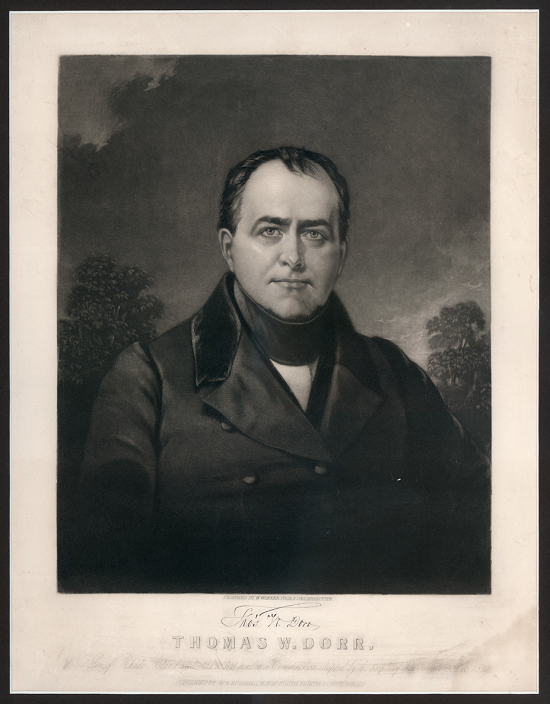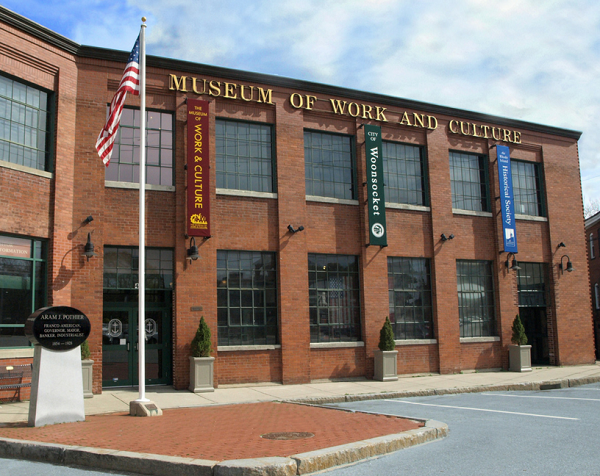Free Talk by Historian Erik Chaput on the Dorr Rebellion

WOONSOCKET, R.I. – Valley Talks, a series of biweekly historical lectures by the Museum of Work & Culture, continues Sunday, January 24 at 1pm on Zoom.
Professor Chaput will present “The People’s Martyr” and the Dorr Rebellion an exploration of the life of Thomas Wilson Dorr and the 1842 Rhode Island rebellion that bears his name. Thomas Dorr’s attempt at constitutional reform set off a firestorm of debate over the nature of the people’s sovereignty in Jacksonian America.
Individuals can register for the talk by visiting
This year’s series is presented as part of the Rhode Island Historical Society’s Taking a Stand in Rhode Island, a yearlong examination of how the people who have called this place home, from the 17th century to the recent past, have identified aspects of society that needed to shift and how they worked to change them.
Erik J. Chaput received his doctorate in early American History from Syracuse University. He is the author of The People’s Martyr: Thomas Wilson Dorr and His 1842 Rhode Island Rebellion (University Press of Kansas, 2013). Professor Chaput teaches American history in the School of Continuing Education at Providence College and The Lawrenceville School in New Jersey.
Professor Chaput’s research has appeared in numerous publications, including Reviews in American History, Rhode Island History, Common-Place, American Nineteenth Century History, The New England Quarterly, the U.S. Catholic Historian, The Catholic Historical Review, Historical New Hampshire, and the Historical Journal of Massachusetts.
He is the co-editor with Russell J. DeSimone of a digital edition of the letters of Thomas Wilson Dorr. The letters are available on the Dorr Rebellion project site hosted by Providence College.
Other Valley Talks will include:
February 7: Filmmaker Christian de Rezendes will screen a piece of the in-progress Slatersville: America’s First Mill Village, which will focus on the man who purchased the Slatersville mill and village in 1915.
February 21: Writers Rebecca Altman and Kerri Arsenault will explore their work about North American manufacturing and the environmental, political, and personal legacies it has left behind.
March 7: Writer and historical reenactor Paul Bourget will examine the Sentinelle Affair, the local underground movement that led to the excommunication of 61 congregants.
March 21: Author David Vermette will discuss how the U.S. mainstream perceived French-Canadians when they were an immigrant community in New England at the turn of the 20th century.
About the Museum of Work & Culture

The interactive and educational Museum of Work & Culture shares the stories of the men, women, and children who came to find a better life in Rhode Island’s mill towns in the late 19th- and 20th centuries. It recently received a Rhode Island Monthly Best of Rhode Island Award for its SensAbilities Saturdays all-ability program.
About the Rhode Island Historical Society

Founded in 1822, the RIHS, a Smithsonian Affiliate, is the fourth-oldest historical society in the United States and is Rhode Island’s largest and oldest historical organization. In Providence, the RIHS owns and operates the John Brown House Museum, a designated National Historic Landmark, built in 1788; the Aldrich House, built in 1822 and used for administration and public programs; and the Mary Elizabeth Robinson Research Center, where archival, book and image collections are housed. In Woonsocket, the RIHS manages the Museum of Work and Culture, a community museum examining the industrial history of northern Rhode Island and of the workers and settlers, especially French-Canadians, who made it one of the state’s most distinctive areas.
